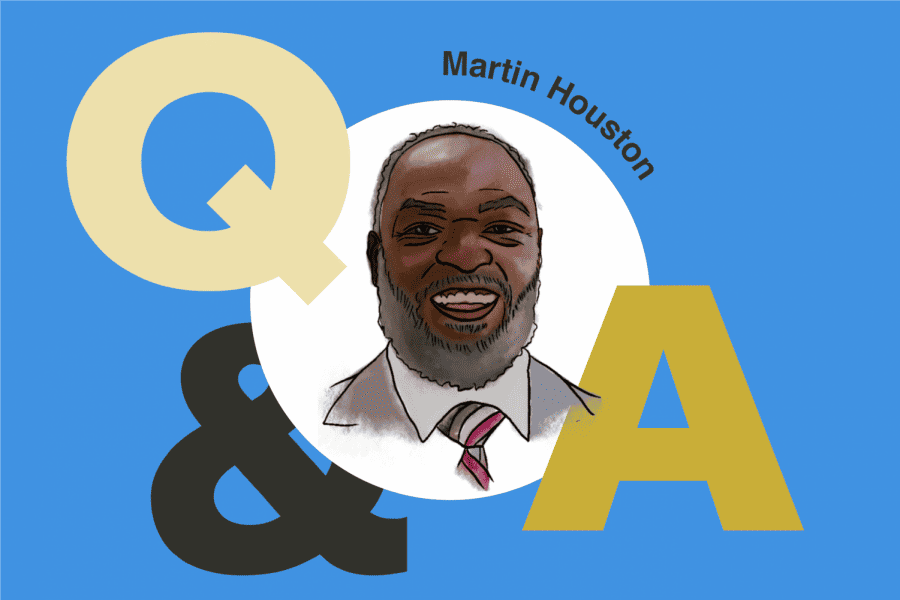Q&A | Meet the businessman who wants to coach Tuscaloosa to greatness
Martin Houston wants to be mayor of Tuscaloosa.
March 1, 2021
If elected, you will lead a city that encompasses the state’s flagship university. How do you plan on balancing the interests of the more than 30,000 UA students in Tuscaloosa with those of city residents?
I see [students] not as a pass through to this city, but as a viable part of the City of Tuscaloosa. They are here to get an education, and so I would say that is equivalent to someone getting a four or five-year stint from Mercedes assigned to our city. Number two, we need to recognize that we have a great opportunity to incorporate their vision and influence into the direction and growth of our city because they’re coming from all over the world. Looking at what the University and its students are putting out and then begin to recruit jobs that are knowledge-based, research-based and technology-based to help that migration happen now.
In the WVUA debate, knowledge-based industries were discussed as a potential job market resource for students. What kinds of knowledge-based companies do you plan on recruiting, and what specific plans will you implement to bring them to town?
Some people say, “Are you a build it and they will come guy, or you are a recruit guy?” I’m a both/and guy, so I think you begin to recruit industries, while you also begin to put facilities in place, much like Nick Saban did when he recruited Julio Jones. That’s the kind of approach I would take.
As mayor, you will have to address the proliferation of student housing developments. Please explain innovative strategies to address this issue.
You know the city has their plan and developers have theirs, and so you have to have a master plan that the city puts in place that says this is when, where and how we want to grow. The other part I’m concerned with is if the trend of student enrollment continues from last year, like if there’s a decrease. What are we going to do if we’ve overbuilt already, which a lot of people tend to think we are.
Describe your specific policies to enhance safety measures for Tuscaloosa, specifically on campus.
Policing is a hot button issue everywhere you look, and I think that we need to change the narrative around police being adversaries and begin to present them as assets in the community. I come from what I call true community policing, which is the police being out in the community on a regular basis and not just when there’s crime or when there’s a call. When I was growing up, I used to speak for a D.A.R.E, a drug awareness program, and I would say, we need a 2021 version of that, which will center on synthetic drugs, gangs and guns and other things. As far as specifically to the campus, I have not put a lot into that, I would take the same approach with the University like I would with the city.
In 2020, the City of Tuscaloosa reported a combined budget of over $230 million. Explain your fiscal approach and the specific short-term and long-term goals you intend to set for managing the budget.
One thing I will look into is potentially continuing the practice of some job freezes. Not coming in to get rid of people, but instead looking for opportunities when we have people retire or move on, and where we can use technology to cut budgets and cut jobs, like last year when they eliminated three jobs, so that would be one of the big things. I’m going to make the accounting a little clearer because I’ve had some difficulty trying to trace where all the numbers in the funds come from. I’m going to keep the funds separate and transparent. I think we need to not just look at cutting spending and and putting back for maintenance, but I think we need to look at additional revenue options without raising taxes that will allow us to come out of this COVID world.
During this election season, the issue of transparency has been raised. How do you plan on ensuring increased access to the mayor’s office for residents post-pandemic? In what ways will you work to connect with your constituents on a more personal level?
Well, one of the things I have already planned is launching “Morning Manner with the Mayor,” and I’m going to use Facebook and other social media as a way for citizens to truly interact with me by asking questions and answers. Outside of that, we need to try as quick as we can to open back up City Hall, so that the people’s voice can be heard, and they can have access to it.
Earlier this month, the CW reported that there was PAC and corporate influence on the mayoral election, which is a cause for concern for many city residents. Do you see why this could be an issue? And what do you say to the criticisms?
If somebody gives me a dollar, they have one vote. If someone gives me $10,000, they have one vote. When it comes to political influence, the amount of money they give will not buy influence. If people don’t donate to me and don’t vote to my campaign, they’re going to have the same access and the same influence as the people who did. These people have no more influence on me than regular people.





















